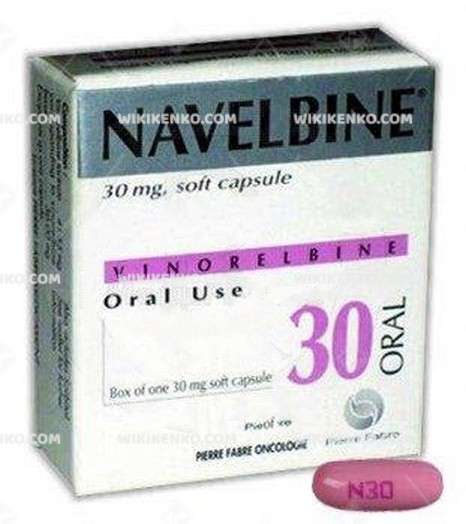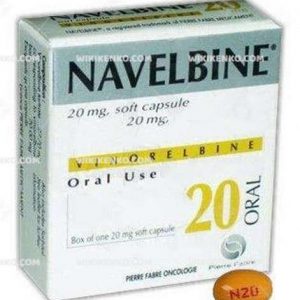Navelbine Soft Capsule 30 Mg
Navelbine Soft Capsule 30 Mg is a medication used in the treatment of various types of cancer. In this comprehensive article, we will delve into its composition, indications, dosage, safety, and potential side effects, providing medical professionals with a thorough understanding of this important oncology drug.
| Dosage form | |
|---|---|
| Pack size | |
| Potency | 30 Mg |
| Manufacturer | |
| Origin | |
| Generic Name (Ingredient) | Vinorelbin Tartrate 41.55 Mg (Equivalent To 30 Mg Vinorelbine Base) |
Assuming your emergency circumstances for this product, visit Urgent Quotation page. Besides, for any pharmaceutical questions, please ask us in the comments section.
Description
Active Ingredient and Pharmaceutical Form
The primary active substance in Navelbine is Vinorelbine Tartrate, a semi-synthetic vinca alkaloid derivative. Navelbine is available in the form of soft gelatin capsules.
Navelbine is prescribed for the following oncological conditions:
Advanced Breast Cancer
Navelbine is used as a single agent or in combination therapy after the failure of standard treatment options.
Advanced Non-Small Cell Lung Cancer
Navelbine is administered as a single agent or in combination as a first-line treatment.
Dosage and Administration
The recommended dosage of Navelbine is 30 mg/m² administered intravenously over 6 to 10 minutes once a week. Dosage modifications may be necessary based on individual patient response and myelosuppression.
Safety and Effectiveness
Navelbine has demonstrated efficacy in the treatment of the specified cancers. Regular monitoring and appropriate dose adjustments are crucial to manage potential side effects.
Side Effects
The common side effects associated with Navelbine include:
Myelosuppression
Dose hold or reduction may be necessary in case of severe myelosuppression.
Other Side Effects
Fatigue, nausea, and neuropathy may also occur.
Drug Interactions
Navelbine (Vinorelbine Tartrate) has a significant number of known drug interactions, including 70 major, 380 moderate, and 17 minor interactions. Common interacting medications include Abraxane, Advair HFA, Afinitor, Cymbalta, Lyrica, Plavix, and Zofran, among others.
Storage and Handling
Navelbine capsules should be stored at a temperature between 5°C to 30°C (41°F to 86°F), protected from excessive light exposure, and kept in their original packaging. Diluted Navelbine solutions may be used for up to 24 hours under normal room light when stored in polyvinyl chloride bags at the recommended temperature range.
Dietary Considerations
Patients taking Navelbine should be monitored for potential issues such as constipation, bowel obstruction, extravasation, neurologic toxicity, pulmonary toxicity, and embryo-fetal toxicity. Appropriate dietary modifications, such as increased fiber intake, hydration, and the use of stool softeners, may be necessary to mitigate these concerns.
Conclusion
Use the form below to report an error
Please answer the questions as thoroughly and accurately as possible. Your answers will help us better understand what kind of mistakes happen, why and where they happen, and in the end the purpose is to build a better archive to guide researchers and professionals around the world.
The information on this page is not intended to be a substitute for professional medical advice, diagnosis, or treatment. always seek the advice for your physician or another qualified health provider with any questions you may have regarding a medical condition. Always remember to
- Ask your own doctor for medical advice.
- Names, brands, and dosage may differ between countries.
- When not feeling well, or experiencing side effects always contact your own doctor.
Cyberchondria
The truth is that when we’re sick, or worried about getting sick, the internet won’t help.
According to Wikipedia, cyberchondria is a mental disorder consisting in the desire to independently make a diagnosis based on the symptoms of diseases described on Internet sites.
Why you can't look for symptoms on the Internet
If diagnoses could be made simply from a textbook or an article on a website, we would all be doctors and treat ourselves. Nothing can replace the experience and knowledge of specially trained people. As in any field, in medicine there are unscrupulous specialists, differences of opinion, inaccurate diagnoses and incorrect test results.





Reviews
There are no reviews yet.